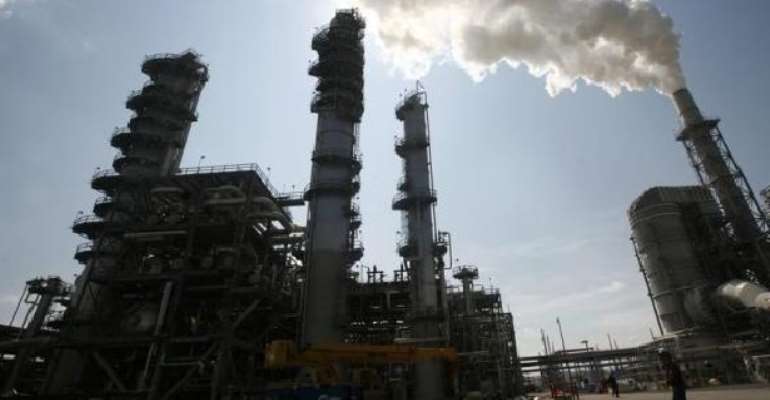Nigeria Should Overhaul State Oil Sales To Stop Corruption – Report

…NNPC’s crude allocation for refineries no longer serves purpose
…Oil used in ad hoc ways, swap contracts full of holes
…Decade’s worth of revenues from entire crude stream unremitted
Nigeria’s new president should overhaul how Africa’s biggest oil producer sells its state oil company’s share of crude oil output to save billions of dollars in wasted and lost revenues, a report by an international governance watchdog said on Tuesday.
About half of Nigeria’s 2 million barrel per day (bpd) crude output goes to NNPC, the state-owned oil company. NNPC sells half that oil to its subsidiary Pipelines and Product Marketing Co for the country’s refineries.
The poorly maintained plants are however unable to process the bulk of the oil and over the years this allocation has devolved into a “nexus of waste and revenue loss,” according to the report by Natural Resource Governance Institutes (NRGI), a non-profit.
The other half of NNPC’s oil share is mostly sold to “unqualified intermediaries,” earning significant margins for little or no added value, rather than directly to the end-users, NRGI said.
A spokesman for NNPC declined to comment on the report.
Reducing losses in crude oil sales has become even more crucial with the slump in global oil prices that has crushed Nigeria’s currency and forced the government to borrow just to cover salaries. Oil sales account for about 70 percent of government revenues.
President Muhammadu Buhari won the end-March election in large part to his tough stance on corruption that is rife in Africa’s biggest oil producer.
Since his May inauguration, Buhari has revealed little about how he will restructure Nigeria’s oil industry but he is bent on recovering “mind-boggling” sums of stolen oil money.
The mismanagement and corruption surrounding NNPC’s sales lie at the heart of the problem and former central bank governor Lamido Sanusi was sacked after pointing out that $20 billion had not been remitted between January 2012 and July 2013.
Constitutionally, NNPC is meant to remit all revenues to the country’s treasury but the act establishing the state firm allows it to keep what it needs to cover costs with little oversight.
The result is a legal grey area that has been open for abuse for decades.
BILLIONS MISSPENT, UNACCOUNTED FOR
As the refineries became increasingly dilapidated under successive administrations, NNPC came up with ad-hoc substitutes such as the poorly constructed crude-for-product swap contracts or exports to select traders.
“The refineries only process around 100,000 bpd. NNPC ultimately re-routes most…and payments enter separate NNPC accounts, which NNPC officials then draw upon freely,” NRGI wrote in its report, adding that NNPC explanations for its spending were incomplete and contradictory.
“Discretionary spending” of the proceeds from this oil has shot up to over $6 billion a year from 2011 to 2013 and was spent on a graft-ridden fuel subsidy scheme, ineffective pipeline protection contracts and costly crude transport by sea to the country’s refineries since their feedstock pipelines were left to rot.
In 2013, just 58 percent or $16.8 billion of these revenues were remitted to the country’s treasury. NRGI recommends eliminating the mismanaged refinery allocation completely, which would be a quick win for Buhari before a full restructuring of NNPC can be undertaken.
About 210,000 bpd of the domestic allocation, or $35 billion worth of oil, was converted to crude-for-products swap contracts starting in 2010 that are now being scrutinized by Nigerian authorities for short-changing the government.
According to estimates by NRGI, about $16 a barrel could have been lost in 2011 alone under one offshore-processing agreement.
Questionable revenue retention is not limited to the use of the domestic crude allocation but extends to all areas.
One stark example found by NRGI was the non-remittance of revenues from a decade’s worth of production from one field totaling $12.3 billion between 2004 and 2014.
The oilfield that produces the Okono grade is owned by NNPC’s upstream subsidiary but the operations have been contracted out, and therefore it does not need to keep such large sums.
“In other words, the corporation has provided no public accounting of how it used a decade’s worth of revenues from an entire stream of the country’s oil production,” the report said.
REUTERS
